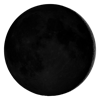NGC 2183 - HII Ionized region in Monoceros
NGC 2183 is a HII Ionized region in the Monoceros constellation. NGC 2183 is situated close to the celestial equator and, as such, it is at least partly visible from both hemispheres in certain times of the year. Given its B magnitude of 15.15, NGC 2183 is visible with the help of a telescope having an aperture of 20 inches (500mm) or more.
The image below is a photograph of NGC 2183 from the Digitized Sky Survey 2 (DSS2 - see the credits section) taken in the red channel. The area of sky represented in the image is 0.4000x0.4000 degrees (24.00x24.00 arcmins).

Celestial Coordinates
Apparent
J2000
Finder Chart
The simplified sky charts below show the position of NGC 2183 in the sky. The first chart has a field of view of 60° while the second one has a field of view of 10°.


Photometric Information
The following table lists the magnitude of NGC 2183 in different bands of the electomagnetic spectrum (when available), from the B band (445nm wavelength, corresponding to the Blue color), to the V band ( 551nm wavelength, corresponding to Green/Yellow color), to the J, H, K bands (corresponding to 1220nm, 1630nm, 2190nm wavelengths respectively, which are colors not visible to the human eye).
For more information about photometry in astronomy, check the photometric system article on Wikipedia.
Apparent Size
The following table reports NGC 2183 apparent angular size. The green area displayed on top of the DSS2 image of NGC 2183 is a visual representation of it.Rise and Set Times
Location: Greenwich, UK
Latitude: 51° 28’ 47” N
Longitude: 0° 00’ 00” E
Timezone: Europe/London
Today's NGC 2183 - HII Ionized region in Monoceros rise, transit and set times from Greenwich, UK are the following (all times relative to the local timezone Europe/London):









